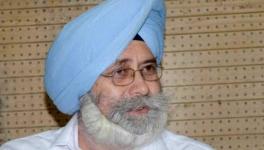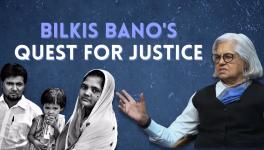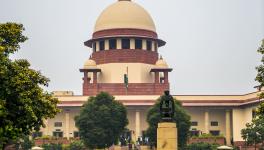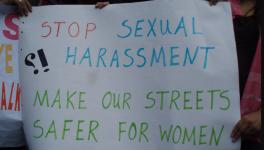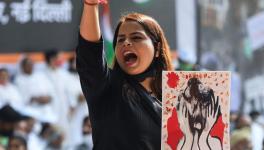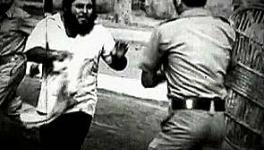India’s 1984 Chapter Will Not Close Until Victims Get Justice—HS Phoolka
HS Phoolka was only 28 years old and had just three years of experience as a lawyer when he took up the 1984 anti-Sikh riots cases following the assassination of then Prime Minister Indira Gandhi by her two Sikh bodyguards. He has become a powerful voice in the courts for the victims of the carnage that unfolded over 1 to 3 November, 1984. Two years ago, when Congress leader Sajjan Kumar was convicted for his role in the murder of five members of a Sikh family and torching a Gurdwara in Delhi’s Raj Nagar on 1 November 1984, Phoolka choked up with emotion in the courtroom. Phoolka, who co-wrote with journalist Manoj Mitta a book on the struggle for justice, “When A Tree Shook Delhi”, tells Newsclick he is not disturbed by alleged rioters still roaming free. Instead, it gives him more energy to keep fighting for justice.
It is already 35 years of waiting for justice for the victims of 1984. According to you, when does the chapter close on these riots?
The chapter closes when the law of the land gets implemented. The law states there is no statute of limitation for the crime of murder and that a case of murder must get registered. It is the duty of the police to find out who committed the murder. The prosecution must bring the culprits to book before the court and get them punished. Why should there be a different law for the Sikhs killed in the 1984 riots! Did you know, [former prime minister] Rajiv Gandhi’s government took three years to count how many Sikhs were killed in that violence? Is it not a joke—and can we imagine that this happened in Delhi? After one month, the home minister released a figure of 650 deaths. After one year, Delhi Police said 1,419 Sikhs were killed. When we gave a list of 3,800 victims, Justice Ranganath Mishra verified it. Then, after three years, they came up with the list that we had provided.
How do you feel when you see Congress leaders such as Jagdish Tytler and Kamal Nath, who allegedly led mobs that killed so many Sikhs, still roaming free in the society?
We have been seeing it for the last 35 years. Jagdish Tytler and Kamal Nath became ministers after the riots. Kamal Nath became chief minister of a state as well. I don’t let these things disturb me. I use it to infuse more energy into my fight. See, something has happened which should not have happened. But I don’t get disappointed; I don’t get disillusioned; I am happy that, at least, the biggest culprit is in jail now. Of course, many cases are pending in courts, and we will continue our fight.
The role of police in the 1984 riots is well-known. Multiple reports have said the Delhi Police was part of the massacre of Sikhs. It seems things have not changed at all. The riots in north-east Delhi last year are a new example.
As far as police role in the 1984 role concerned, officials guilty of failing to perform their duty never got punished. Because the police personnel who committed crimes in 1984 went unpunished, it happened again in the 1993 Mumbai riots and 2002 in Gujarat. The same thing happened in the north-east Delhi riots in February last year. If the culprits of 1984 had been punished, it would not have repeated itself like this.
What motivated you to fight so long for the 1984 victims?
The mental makeup required for such a fight was the most challenging part. When you feel something is hard to do, it becomes difficult to do. When I am taking people in power on, I know what I am getting into. Then the Rajiv Gandhi government had a two-thirds majority in Parliament. HKL Bhagat was a union minister. Yet, when I am going to war, I should know what to expect. So, I prepared myself to face any situation or challenge. My family supported me. My daughter is a lawyer, and she was also in the team and did extensive research work. She got Supreme Court verdicts from various countries, and based on them, Sajjan Kumar got punished.
What do these cases mean to you personally?
Mine is a fight for justice and a fight against injustice, which must continue. There are two fundamental aspects of this fight. One aspect is the Sikh character. History tells us that the Sikhs never forgot a person who committed injustice or cruelty against them. The second aspect is, as a lawyer, I believe the rule of law must prevail. Politicians must always fear the law. They should get the message that nobody is above the law. This struggle is necessary for democracy and to maintain the Sikh character. Our generation fought against injustice, which was a crucial fight, and we succeeded.
You resigned as leader of the opposition from the Punjab Assembly to contest Sajjan Kumar’s appeal for bail in the Delhi High court. That would not have been an easy decision!
I became the AAP leader of Opposition in the Punjab Assembly, and it carried the status of a minister. I could not practice law before the courts as per the Bar Council rules. I applied to the Bar Council to fight the Sajjan Kumar case when his appeal for bail came up for hearing in the Delhi High Court, but the Bar Council declined permission. Whether to give up on this case or leave the post of Leader of Opposition was the most difficult decision I took. My family stood with me during the time. They told me that something you have fought for throughout your life should be your priority. So, I resigned as a leader of the opposition.
When you look back at the 35 years gone by, and what you have achieved, can you say you are a satisfied lawyer?
I could never imagine in my life that this fight would go for so long. I was a young lawyer, just 28 or 29 years old when I began, with only three years at the bar. I had gone to contribute what little I could as a lawyer with three years of practice. At first, I ran after senior [lawyers] and helped them in any way I could. That is how it began. Then, when you see victims’ pain and hear stories of the cruelty they faced, it gives you the conviction to fight. Every failure used to provide me with more energy, not discouragement.
(Jasvinder Sidhu is a freelance journalist.)
Get the latest reports & analysis with people's perspective on Protests, movements & deep analytical videos, discussions of the current affairs in your Telegram app. Subscribe to NewsClick's Telegram channel & get Real-Time updates on stories, as they get published on our website.









